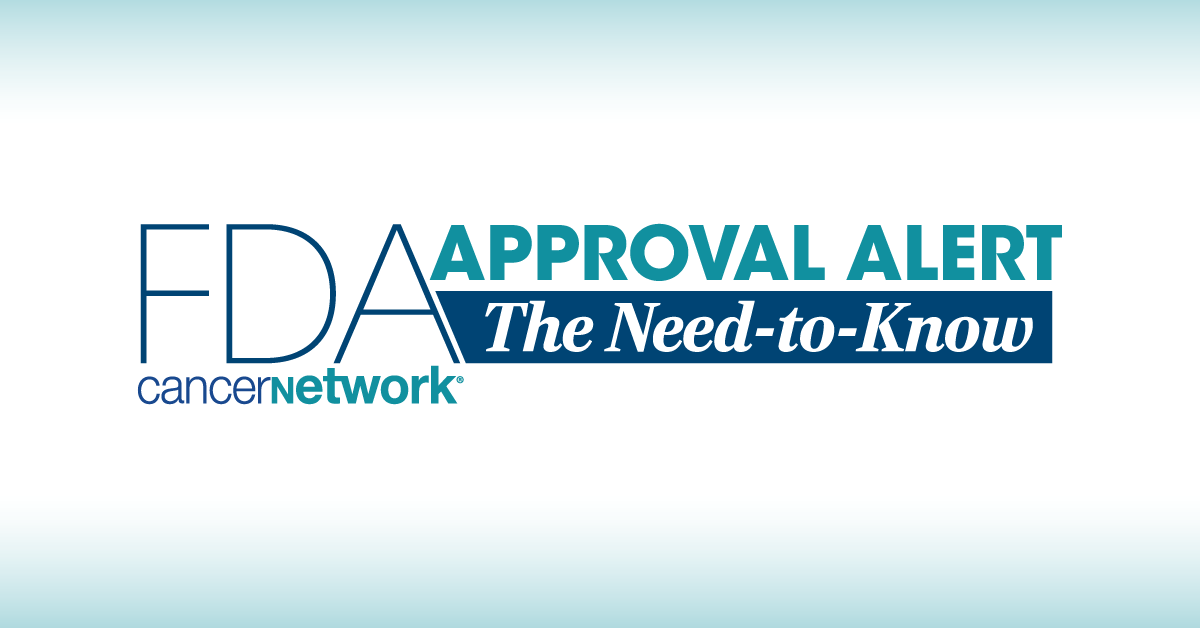FDA OKs Repotrectinib in NTRK Gene Fusion-Positive Solid Tumors
Patients 12 years and older with NTRK gene fusion-positive solid tumors may now receive repotrectinib.
Patients 12 years and older with NTRK gene fusion-positive solid tumors may now receive reprotrectinib.

The FDA has granted accelerated approval to repotrectinib (Augtyro) in adult and pediatric patients who are 12 years and older with NTRK gene fusion-positive solid tumors, according to a press release from the FDA.1
The indication also includes those who have locally advanced or metastatic disease where surgical resection may result in severe morbidity, or for patients who have progressed on treatment without alternative options.
The approval is based on results from the phase 1/2 TRIDENT-1 trial (NCT03093116). The trial included patients who had previously received a tyrosine kinase inhibitor (TKI; n = 48) and those who were TKI-naïve (n = 40). At baseline, investigators assessed patients for central nervous system lesions. Those who had symptomatic brain metastases were excluded. These assessments occurred every 8 weeks.
The confirmed overall response rate by blinded independent central review was 58% (95% CI, 41%-73%) in the TKI-naïve group and 50% (95% CI, 35%-65%) in patients previously treated with TKIs. The median duration of response in the TKI-naïve group was not estimable (NE) (95% CI, NE-NE) and 9.9 months (95% CI, 7.4-13.0) in the TKI-pretreated group.
In 20% or more of patients, the most common adverse effects were dizziness, dysgeusia, peripheral neuropathy, and constipation.
The recommended dose of repotrectinib is 160 mg once daily for 14 days, which can be increased to 160 mg twice daily. Patients can take the treatment with or without food and continue until disease progression or unacceptable toxicity.
The FDA previously granted priority review to repotrectinib for this population based on data from the TRIDENT-1 trial in February 2024.2
References
- FDA grants accelerated approval to repotrectinib for adult and pediatric patients with NTRK gene fusion-positive solid tumors. News release. FDA. June 13, 2024. Accessed June 13, 2024. https://shorturl.at/u09VQ
- U.S. Food and Drug Administration accepts for priority review Bristol Myers Squibb’s application for Augtyro™ (repotrectinib) for the treatment of patients with NTRK-positive locally advanced or metastatic solid tumors. News release. Bristol Myers Squibb. February 14, 2024. Accessed June 13, 2024. http://tinyurl.com/3x8398sh
How Supportive Care Methods Can Improve Oncology Outcomes
Experts discussed supportive care and why it should be integrated into standard oncology care.